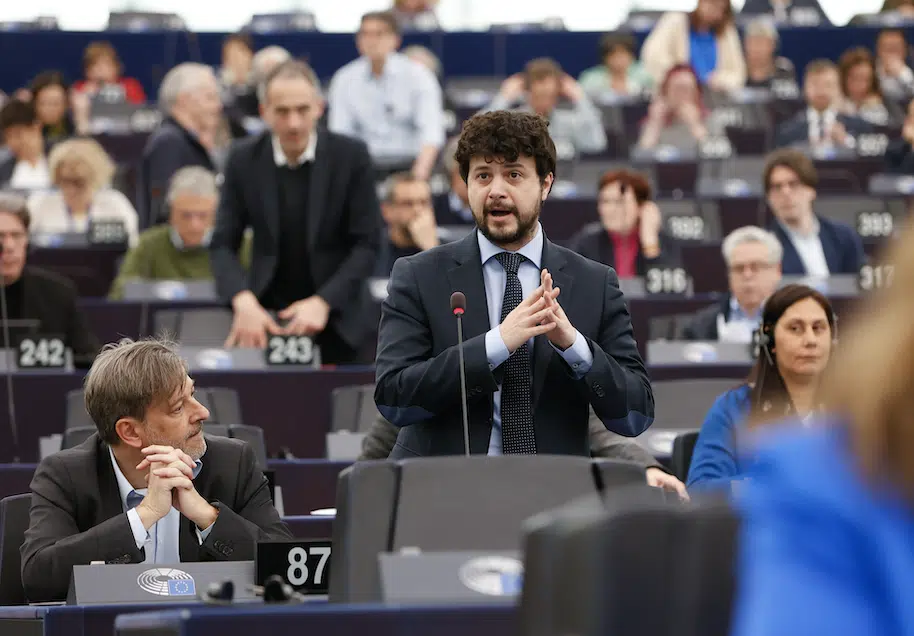This is maybe the easiest way in the short-run, yet the most difficult in the long one: Jean-Claude Juncker seems determined to use it. He will try to get a majority composed of S&D and EPP members only: he’s got the numbers, but they guarantee a very narrow majority: 191 S&D MEPs and 221 EPP MEPs – 412 MEPs, only 36 more than the requested 376 majority MEPs. “Juncker is sure he will be facilitated during the negotiations and he will obtain a ‘vote of confidence’ but the European Parliament is not Luxembourg, and he would have a really hard time to manage them all in the years to come,” said a source from the Parliament. Actually, with only 36 votes representing a majority, MEPs will have to be more than devote during this term. “Yet, usually national logics prevail in MEPs’ choices, then it will be very hard to keep them all for Juncker,” added our source.
After a meeting with Van Rompuy, the EPP head, Manfred Weber, has said it clearly: talking to the press, he said “there are debates with all the democratic forces of the Parliament, but we will start with the S&D.” With them “there is a very narrow but clear majority, and that will be the base for working in the next term,” added Weber. “My idea is that both groups see a cooperation in a positive way, not only the leaders, but all the components of the group. They all know we need a good cooperative spirit, for the sake of Europe.”
‘Cooperation’ is the buzzword at the European Parliament these days, where someone even imagines sort of a ‘permanent structure’ where socialists and populars should smooth their differences before presenting the most difficult acts to the Parliament. “In case of difficulties in finding an agreement, the EPP will look for liberals and the right to create alternative majorities on single acts,” explained another source. “This is what happened in the last term too, when the political majority was clearer: no news, it’s politics.”









![La riunione dell'Eurogruppo a Varsavia [11 aprile 2025]](https://www.eunews.it/wp-content/uploads/2025/04/eurogruppo-250411-120x86.png)


